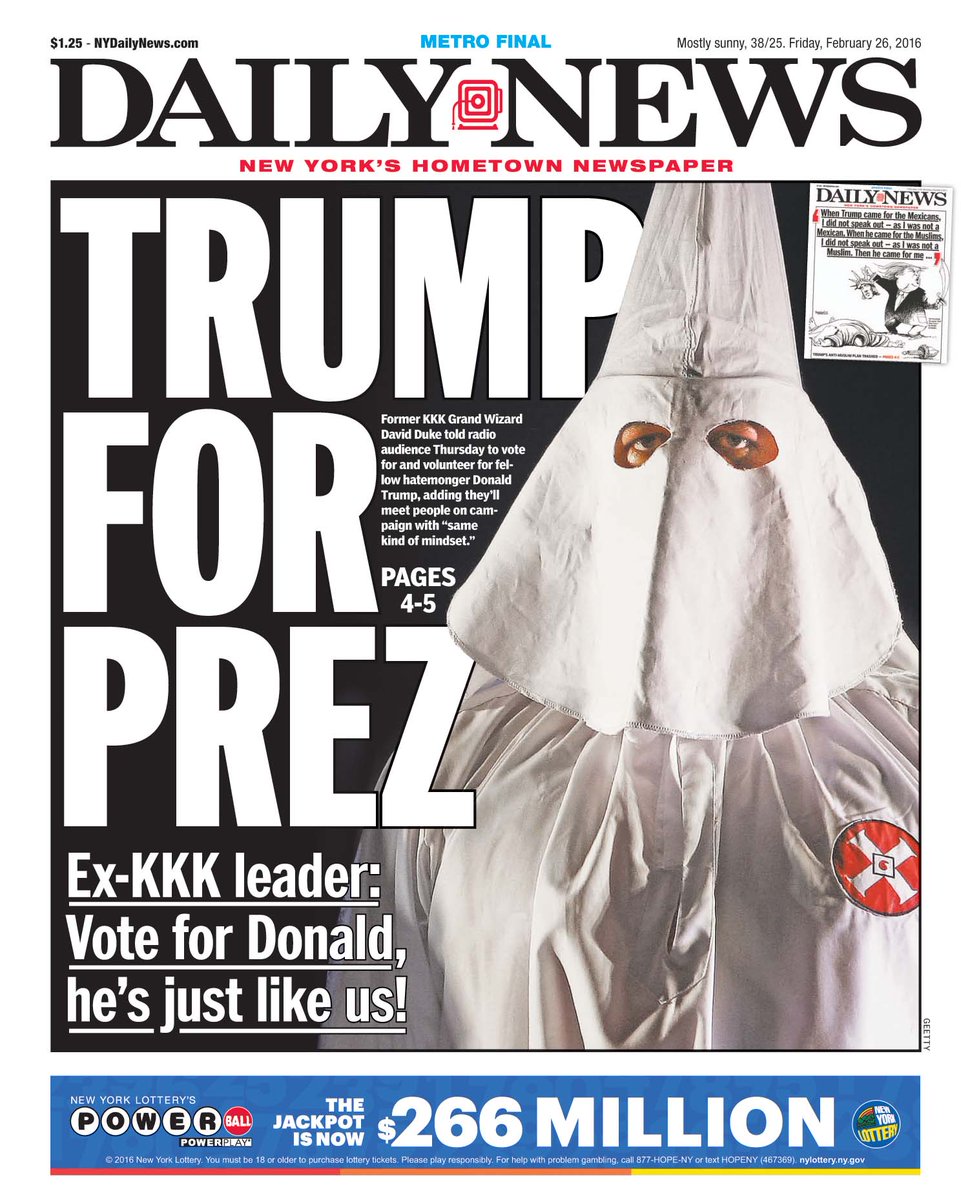Recently, Marco Rubio gave a speech in which he more or less boasted about calling Trump out as a con man " five days ago." This hits on a question Joseph and I have been discussing and texting over for quite a while now, why did it take so long? Why did topics like Trump University go unmentioned until the candidate was on the verge of cinching the nomination?
Joseph suggested glass houses. Lots of Republican candidates would prefer that the topic of for-profit education not come up. I am sure there is something to that but I think there is a bigger and scarier factor.
What if the people in charge of the Republican Party actually believed what they read in the paper? Even without the threat of a third party run (though that may have been the main factor), the Party had plenty of reason to be reluctant to piss off Trump. He had money, power, media access, a devoted following and a proven willingness to play nasty.
Balanced against the considerable risks of attacking Trump, what were the risks of letting him be? That depended on who you listened to. Among those with good track records, there were basically two camps: the guardedly nervous and the confidently optimistic. The first group (Paul Krugman, Josh Marshall, Jonathan Chait, et al.) considered a Trump nomination a long shot but still something to be taken seriously, partially because long shots do come in and partially because Trump would almost certainly exert considerable influence even if he didn't win the primary. The second group (which included most major data journalists) argued that Trump had virtually no chance of winning, was “not a real candidate,” and would have no significant impact on the rest of the race.
Even at the time, a lot of us pointed out problems with the optimistic camp position. The statistics cited were piecemeal and didn't come together in a coherent argument. Important parts were left out of the historical analogies. Conflicting evidence was ignored. Narratives took the place of models. Nonetheless, the optimistic position was the overwhelming establishment favorite.
Working from those favored assumptions, the delay in hauling out the serious charges against Trump would have been entirely rational. Why engage in a costly battle against an opponent who was already on the verge of imploding?
And when those assumptions have their final, fatal encounter with reality, outcomes like
this were entirely to be expected:
So many things are happening right now - mostly with the actors in question having no clear plan for what they're doing - that it's very hard to know where our politics will be a week from now let alone in six months. But there's one thing we can see clearly and it's worth noting: top Republican stakeholders are breaking a lot of china right now that will be very, very hard to unbreak. What seems most relevant to me is that almost all of this is being done with no clear sense of an end-game or even a clear plan.
